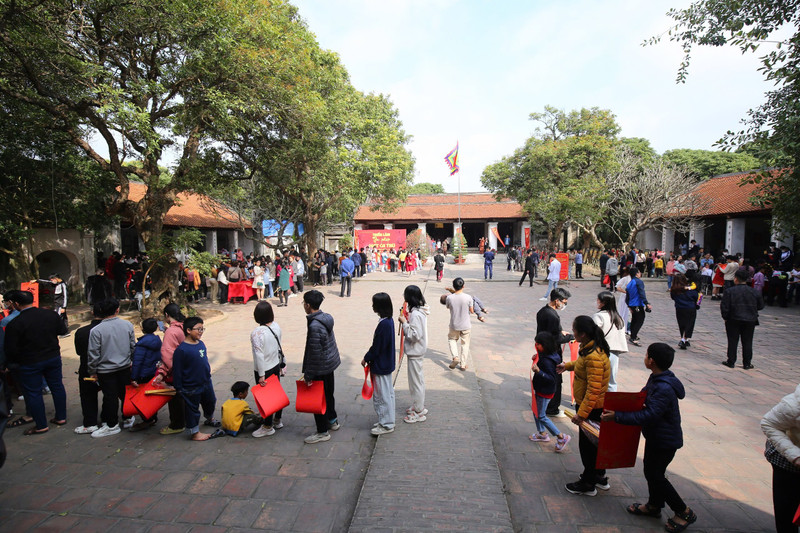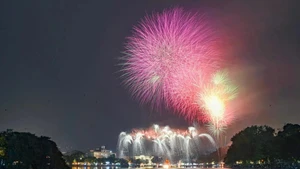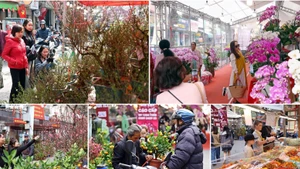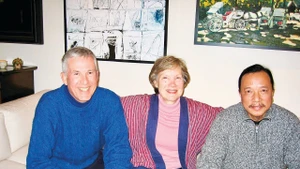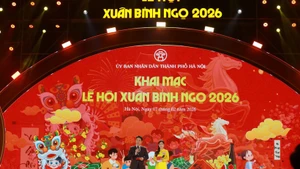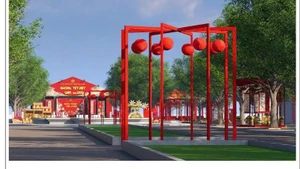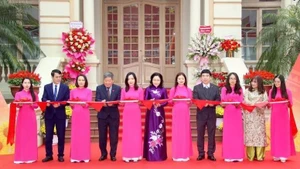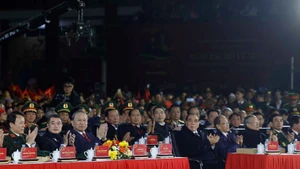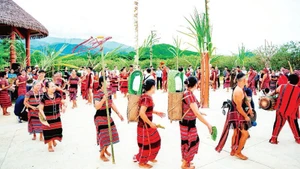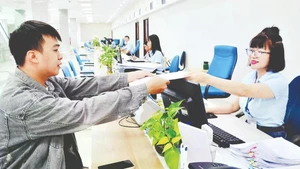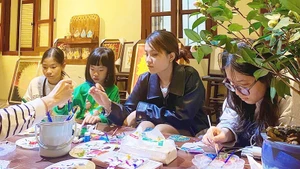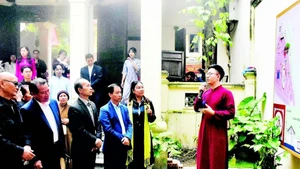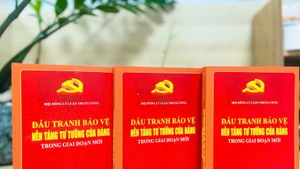More than just a relic of Confucian education and Viet Nam’s academic heritage, the Hung Yen Temple of Literature also serves as a distinctive space for vibrant community cultural activities. Nguyen Thi Hoa, Head of the Management Board of the Pho Hien Special National Relic Site, said that during the spring and autumn festival seasons, especially in early spring (the 4th and 5th days of the Lunar New Year), a lively festival takes place at the temple celebrating intangible cultural values. This event features a variety of dynamic cultural and educational activities designed to revive the scholarly traditions of the culturally rich Hung Yen province, such as calligraphy exhibitions, ca tru (ceremonial singing) performances, and the giving of auspicious calligraphy at the start of the year. At the same time, individuals and groups with outstanding achievements in learning and teaching are honoured.
The cultural and educational activities at the Hung Yen Temple of Literature embody the local tradition and moral value of respecting teachers and education cherished by the people of Pho Hien. They encourage all generations to diligently study and cultivate themselves by following the example of their ancestors, attracting large numbers of residents and visitors to come and appreciate, thereby creating a unique cultural charm of the Pho Hien land.
During the festival, traditional ceremonies at the Hung Yen Temple of Literature are conducted solemnly, encompassing a full range of rituals including from incense offerings, ceremonial memorial readings to calligraphy demonstrations, handwriting competitions, and recitations of classical sages’ texts. Candidates, students, and teachers from the region are all encouraged to participate, thereby inspiring pride and a conscious commitment to preserving and developing the homeland’s learning traditions.
Notably, the Hung Yen Temple of Literature also serves as an “open school” in the spiritual life of the community. On regular days, it welcomes groups of students and tourists who come to explore the history of the imperial examination system and learn about Hung Yen’s notable figures. Stone steles inscribed with the names of 138 doctoral laureates, along with ancient artifacts such as stone gongs, bronze bells, and worship statues, act as “living teaching tools”, helping younger generations connect deeply with their heritage.
Schools across Hung Yen Province often organise student visits to the Temple of Literature on special occasions such as Vietnamese Teachers’ Day, youth union coming-of-age ceremonies, and school opening days. This space offers students an immersive learning experience tied to cultural heritage, reviving the moral principle of “respecting teachers and valuing education” and laying a firm spiritual foundation for their academic journey. Many teachers have shared that teaching alongside a monument so deeply rooted in the spirit of education is both an honour and a motivation to carry forward the noble mission of cultivating future generations.
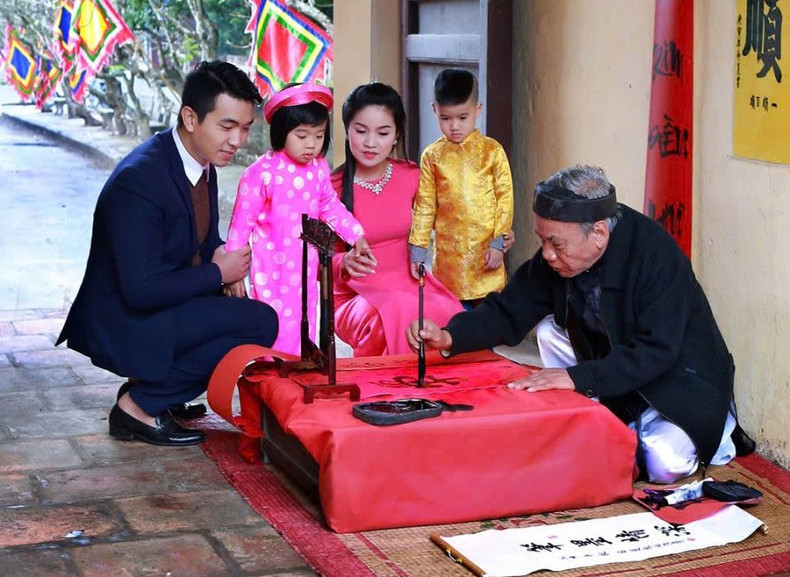
The Hung Yen Temple of Literature is not merely a place of worship - it stands as a symbol of intellect, resilience, and the aspiration to rise through education for the people in the Red River Delta. This spirit has nurtured generations of scholars from renowned families such as the Duong family in Lac Dao commune, the Le family in Lieu Xa, and the Hoang family in Tho Hoang. It has also produced eminent figures like Nguyen Trung Ngan, Do The Dien, and Le Quy Don. The stories of these doctorate laureates and pioneering scholars are not only a source of pride but also serve as rich material to instill cultural self-respect and pride among today's younger generations.
In today’s era of digital transformation, the Hung Yen Temple of Literature continues to serve as a spiritual anchor for educators and learners alike. The values it upholds, including the spirit of honouring knowledge, respecting etiquette, and encouraging self-discipline, form a precious foundation for individuals to integrate into the modern world without losing their identity, to grow while remaining rooted in their cultural origins.
With its exceptional historical and cultural significance, the Hung Yen Temple of Literature was recognised as a National Historic Site in 1992 and designated a Special National Relic in 2014. To ensure that this heritage truly lives on in the hearts of the people, Hung Yen province and relevant authorities have been actively working to preserve and enhance the temple’s structures through careful restoration and conservation efforts.
A wide range of activities such as exhibitions, seminars, workshops, and cultural exchanges, have been regularly held at the site, gradually transforming the Temple of Literature into a true heritage education centre where learners not only read and listen, but truly “live within” the heritage. Special attention has been also being paid to digitising materials and applying technology to the interpretation and presentation of the site. Virtual tours, introductory videos, and QR codes linked to historical and cultural information have brought the heritage closer to young people—the future custodians of the nation.
Thanks to these efforts, younger generations are no longer indifferent to heritage. Instead, they are actively spreading cultural appreciation through community activities, history clubs, and social media content creation, breathing new life into traditions with a spirit of learning, respect for knowledge, and gratitude toward seniors.
As such, the Hung Yen Temple of Literature stands out as a cultural landmark that the province continues to preserve and promote with great care. It is a source of pride for Hung Yen people, who are carrying forward the legacy of their ancestors and writing new chapters in the history of scholarship on this land of prosperity and cultural refinement.
